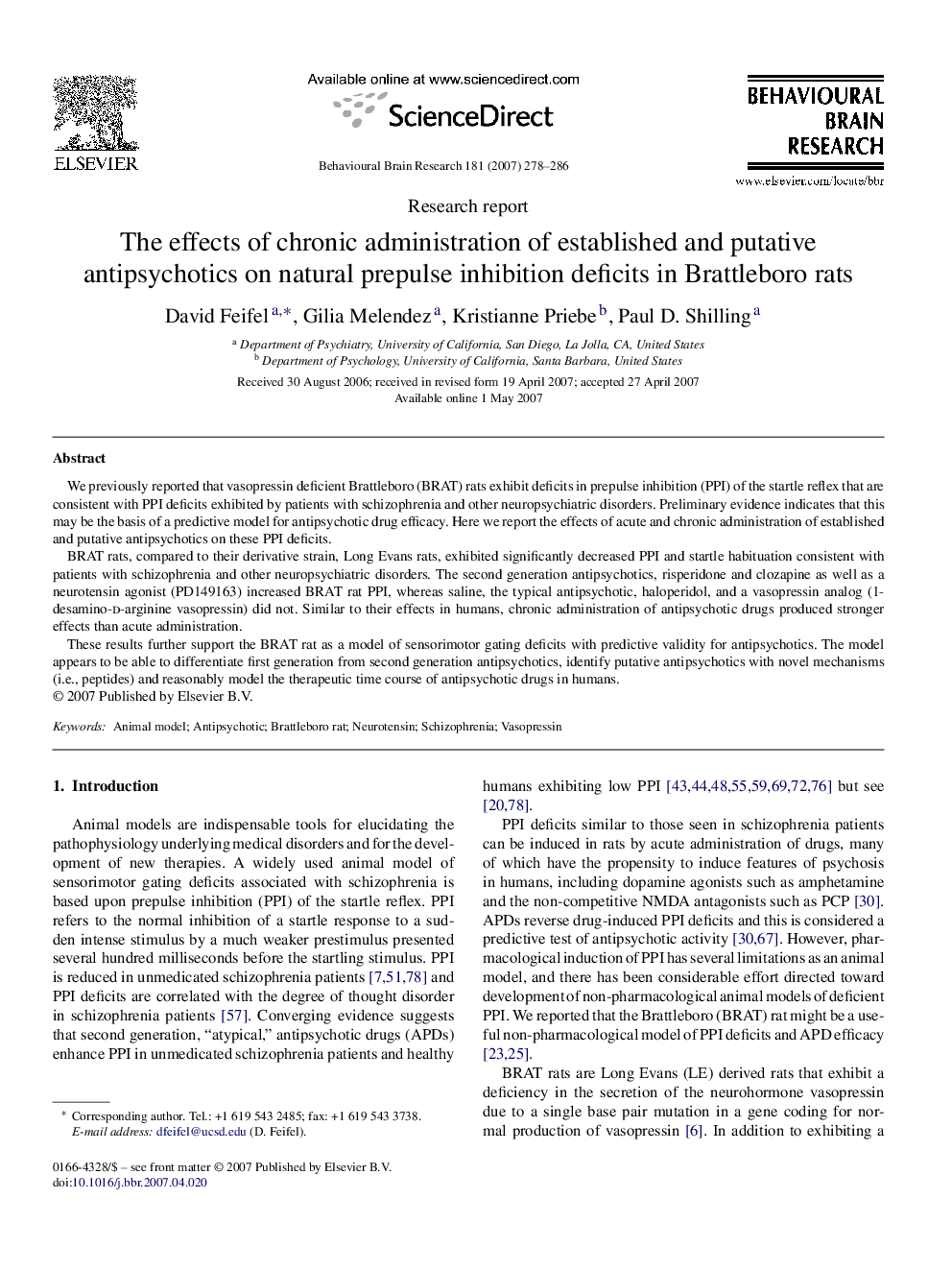| Article ID | Journal | Published Year | Pages | File Type |
|---|---|---|---|---|
| 4315614 | Behavioural Brain Research | 2007 | 9 Pages |
We previously reported that vasopressin deficient Brattleboro (BRAT) rats exhibit deficits in prepulse inhibition (PPI) of the startle reflex that are consistent with PPI deficits exhibited by patients with schizophrenia and other neuropsychiatric disorders. Preliminary evidence indicates that this may be the basis of a predictive model for antipsychotic drug efficacy. Here we report the effects of acute and chronic administration of established and putative antipsychotics on these PPI deficits.BRAT rats, compared to their derivative strain, Long Evans rats, exhibited significantly decreased PPI and startle habituation consistent with patients with schizophrenia and other neuropsychiatric disorders. The second generation antipsychotics, risperidone and clozapine as well as a neurotensin agonist (PD149163) increased BRAT rat PPI, whereas saline, the typical antipsychotic, haloperidol, and a vasopressin analog (1-desamino-d-arginine vasopressin) did not. Similar to their effects in humans, chronic administration of antipsychotic drugs produced stronger effects than acute administration.These results further support the BRAT rat as a model of sensorimotor gating deficits with predictive validity for antipsychotics. The model appears to be able to differentiate first generation from second generation antipsychotics, identify putative antipsychotics with novel mechanisms (i.e., peptides) and reasonably model the therapeutic time course of antipsychotic drugs in humans.
